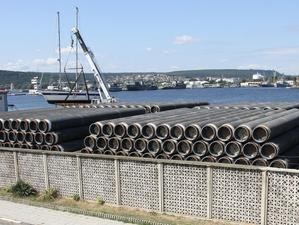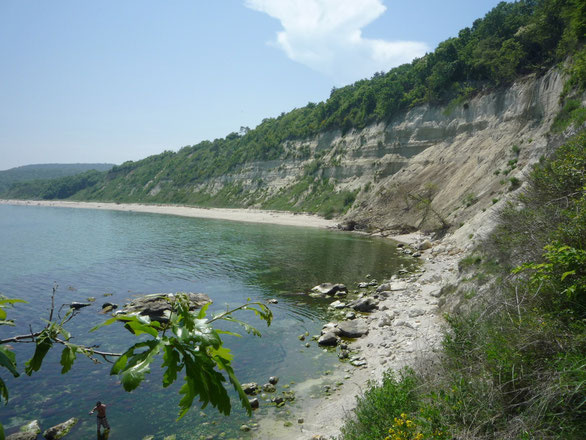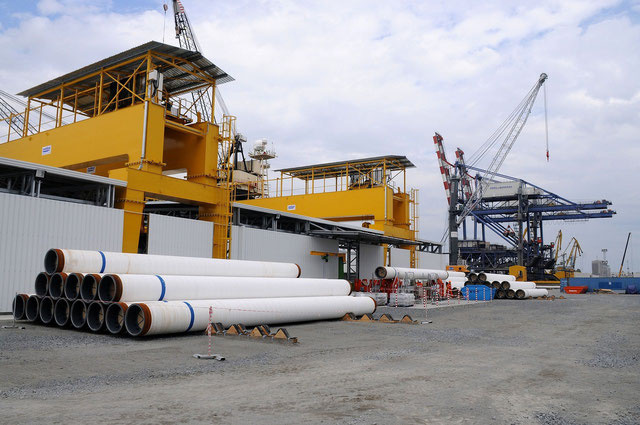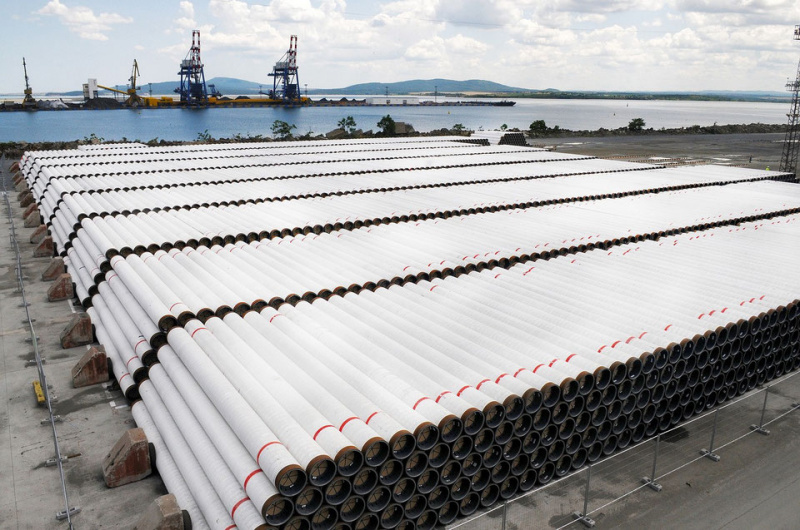Media Fixer in Bulgaria
5 Secrets about South Stream You Don't Know but Should
Russia bared its fangs at Bulgaria after declaring South Stream dead. But the game is not over yet and the page is not closed. Especially in terms of revelations about the true story behind the grandiose project. Here are five facts, which you don't know, but should.
In Bulgaria, an eruption of cheerful approval and dire predictions greeted the news that Russia has scrapped the South Stream pipeline project. A big chance lost? Or a big step forward in severing the deep ties with Putin's Russia?
Whatever the answer, the news has put a big spoke in Bulgaria's energy mafia's wheel. South Stream was a project for pocketing money since it was not economically viable.
Here are five facts backing this claim, which you don't know, but should.

vs South Stream capacity
First of all, only one-third of the South Stream pipeline's capacity was going to be used. Why?
Here are a few figures for the sake of comparison. Nord Stream pipes run 300 meters under the ground and its compression station is powerful enough to pump gas that fills 40% of the pipes.
South Stream pipes were to run at 600 meters undersea and underground. That means that no matter how powerful the compression station was to be, only about one-third of the pipe's capacity was going to be used.
 Transit fees? What transit fees?
Transit fees? What transit fees?
Secondly, Bulgaria was not about to pocket transit fees for decades on end. Why ?
On August 19 South Stream Bulgaria, the company planning to build the section of the pipeline on Bulgaria's land, raised capital, defying an order to halt preparations for the project. South Stream Bulgaria is an equal joint venture between state-owned Bulgarian Energy Holding (BEH) and Russian gas exporter Gazprom. The joint venture raised its capital to 397.6 million levs (USD 270.86 million) from 15.588 million.
In fact, the Bulgarian Energy Holding (BEH) secretly took a loan from Gazprom. The money – allegedly some 200 million levs – were transferred to the joint venture capital. Under the agreement BEH was to pay back the loan it took from Gazprom with the transit fees that Bulgaria was supposed to pocket. But it was to take years – even decades - to pay back that loan, which means that during that time Bulgaria was not to receive a single lev from the transit fees of South Stream.
Also, if different operators have access to the pipe, nobody will be able to determine the prices. Gazprom however wants Russians to build the pipe, own it, operate it, supply it with gas and get the transit fees.
This is not a win-win situation, critics fume.
"South Stream is profitable only for Gazprom and Russia's interests. Gazprom brings in its wake the Russian style of doing business and a whole group of other companies," they say.
But follow the money transfers, and you will see that the project - even while being in the pipeline - has been also profitable for companies, linked to the three main political parties in Bulgaria - currently ruling GERB, ethnik Turkish DPS and Socialist BSP.
 Golden gateway to Europe
Golden gateway to Europe
Bulgaria's geographical position has meant the country has played a key role in international gas transit. The role only strengthened owing to plans to host portion of the South Stream project.
A picturesque virgin beach in Pasha Dere district near the town of Varna was picked as the actual key gateway to Europe for South Stream gas. And there is a special reason why the location is such a precious jewel for gas oligarchs.
The shelf along Bulgaria's Black Sea coast is very steep. Pasha Dere is the only spot along the coast, which is not that steep as it used to be the bed of an ancient river before the sea waters took over. This is the reason why Pasha Dere is the only place along Bulgaria's Black Sea coast where any kind of pipeline could enter into Bulgaria's territory.
Attempting to put a pipeline at any other place would be a much more difficult and expensive exercise because of the drilling works needed. In South Stream case, drilling works would have inflated the price by some 10-20 billion dollars. All this made the owner of the land plot near Pasha Dere very powerful, a key factor in any pipeline project along the Black Sea coast.
 Of Black Sea gas resources, Bulgaria and Ukraine
Of Black Sea gas resources, Bulgaria and Ukraine
There are huge resources of gas inside the Black Sea, which Bulgaria can drill and develop with the help of the European Union and the United States.
What was the trick with South Stream? Putin's cohorts in Bulgaria wanted to connect the offshore section of the pipeline with the existing gas supplying network. In this case they would have had the right to tell Brussels the pipeline does not violate any EU rules as this is not a new pipeline, it was already there.
Putin needed South Stream to bypass Ukraine. He was afraid that if he does not construct the pipeline quickly and supply gas directly to Europe, it may be stopped from the Ukrainian side. Ukraine has huge resources of gas in the Black Sea. Once these resources are discovered and developed, Ukraine is in a perfect position to start supplying gas directly to Europe.
That's the reason why Putin annexed Crimea and is piling huge pressure on Bulgaria to build the South Stream pipeline. The war in Ukraine was not about the country's European Union prospects, but about those gas supplies.
 Onshore or offshore? That is the question
Onshore or offshore? That is the question
South Stream project put Bulgaria in some tricky diplomatic situations, not to mention dissastifaction from within its own borders and the amount of conflicting interests.
Gazprom and EU countries signed bilateral South Stream agreements as far back as 2008. Later, the European Commission passed legislation known as the “Third Energy Package,” which stipulates that a single company can’t both produce and transport oil and gas.
Eventually it all boiled down to two words - onshore and offshore.
Officially, Bulgaria - an EU member since 2007 - stopped building the pipeline in June after pressure from the European Commission. However, work on the offshore section of the pipeline continued. Gazprom said the ban was imposed only on the onshore section of the pipeline. It claimed the offshore section was not part of the European Union, turning a blind eye to the fact that it passes through an exclusive economic zone and Bulgaria's territorial waters.
Meanwhile, Gazprom, South Stream Bulgaria and South Stream Offshore persistently shirked publicity and did not want to be visible anymore. They just wanted to construct.
“South Stream Bulgaria keeps working on the gas pipeline project,” the company's chief executive Dimitar Gogov said a few days ago, adding there had been no official statement on the part of the shareholders in South Stream that the project had been terminated.
Another indication that the game is not over yet.
